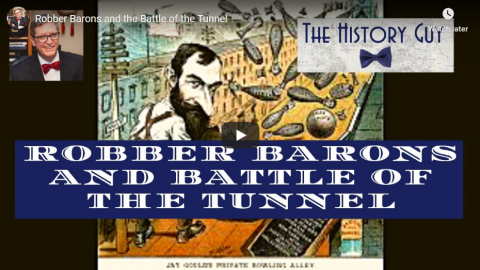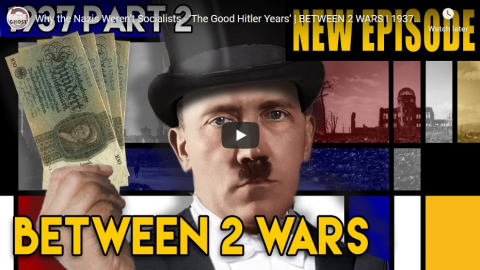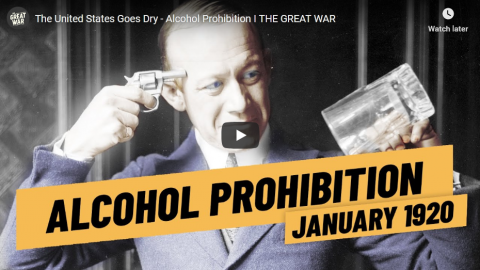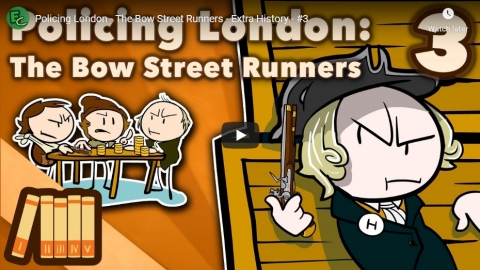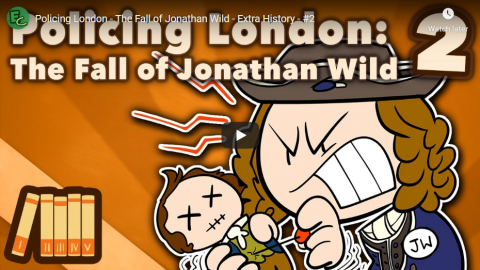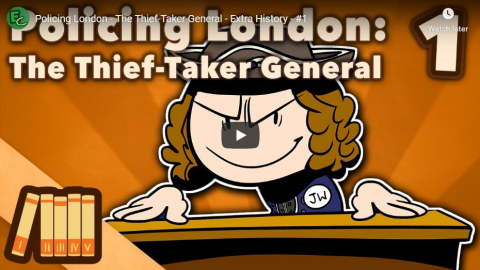Forgotten Weapons
Published 9 Oct 2018https://www.forgottenweapons.com/the-…
http://www.patreon.com/ForgottenWeapons
Cool Forgotten Weapons merch! http://shop.bbtv.com/collections/forg…
The USMC had acquired a few hundred early 1921 model Thompson submachine guns in 1926, and prompted the US Navy to formally test the guns. The Navy requested a reduction in the rate of fire, in order to improve controllability and reduce ammunition consumption (20 round magazines go quickly at 900rpm!). Auto-Ordnance happily complied, and Oscar Payne returned to the company on his spare time to modify the gun. He did this by adding a substantial amount of mass to the actuator, and was able to reduce the rate of fire substantially. The Navy subsequently ordered 500 guns, designated the Model of 1928.
Since most of the original 15,000 guns made by Colt were still in inventory, Auto-Ordnance simply overstamped the “1” at the end of “1921” with an “8” and put the new heavier bolt assemblies in the guns, leading to the collector term “21/28 overstamp” for these Thompsons. The lower rate of fire would become the new standard for the Thompson.
By late 1928, only about 6,000 Thompsons had been sold, and by the end of 1938 10,300 had been sold. Of these, about 1500 total had gone to the US government, about 4100 exported, and the remainder to American police and security agencies. Times were not good for the Thompson — it was an expensive military weapon without a war that needed it. Despite the gun’s huge notoriety, it was actually not used in particularly large numbers by the motor bandits of the 20s and 30s, nor in great numbers by the police. While the FBI did purchase Thompsons, they only bought 115 in total, and not until 1935.
This is the second part in a 5-part series on the development of the Thompson…
Contact:
Forgotten Weapons
PO Box 87647
Tucson, AZ 85754If you enjoy Forgotten Weapons, check out its sister channel, InRangeTV! http://www.youtube.com/InRangeTVShow
June 8, 2020
The Marines’ First SMG: 1921/28 Thompson Gun
April 28, 2020
Robber Barons and the Battle of the Tunnel
The History Guy: History Deserves to Be Remembered
Published 1 Feb 2019During the gilded age ruthless businessmen fought for control of railway lines. The Albany and Susquehanna railroad was another battlefield in the “Railroad wars.” In this episode, The History Guy remembers “the Battle of the Tunnel”.
This is original content based on research by The History Guy. Images in the Public Domain are carefully selected and provide illustration. As images of actual events are sometimes not available, images of similar objects and events are used for illustration.
All events are portrayed in historical context and for educational purposes. No images or content are primarily intended to shock and disgust. Those who do not learn from history are doomed to repeat it. Non censuram.
Patreon: https://www.patreon.com/TheHistoryGuy
The History Guy: History Deserves to Be Remembered is the place to find short snippets of forgotten history from five to fifteen minutes long. If you like history too, this is the channel for you.
Awesome The History Guy merchandise is available at:
teespring.com/stores/the-history-guyScript by THG
#newyork #thehistoryguy #ushistory
February 20, 2020
Why the Nazis Weren’t Socialists – ‘The Good Hitler Years’ | BETWEEN 2 WARS I 1937 Part 2 of 2
TimeGhost History
Published 19 Feb 2020The Nazi economy appears to do well during the 1930s. But this is largely myth, as the German economy under Hitler is based on a self destructive, ideologically or selfishly fuelled irrationality driven by conquest and criminal practice.
Join us on Patreon: https://www.patreon.com/TimeGhostHistory
Hosted by: Indy Neidell
Written by: Spartacus Olsson
Directed by: Spartacus Olsson and Astrid Deinhard
Executive Producers: Bodo Rittenauer, Astrid Deinhard, Indy Neidell, Spartacus Olsson
Creative Producer: Joram Appel
Post-Production Director: Wieke Kapteijns
Research by: Spartacus Olsson
Edited by: Daniel Weiss
Sound design: Marek KaminskiSources:
Bundesarchiv_Bild:
192-269, 183-T0706-503, 183-S68029, 183-S68014,
183-S38324, 183-S33516, 183-S07227, 183-R98364,
183-H29131, 183-H25824, 183-H01704, 183-H13192,
183-H06734, 183-H00455, 183-C12671, 183-86686-0008,
183-2008-0826-506, 183-2008-0826-502, 183-2006-1128-504,
183-2004-0729-507, 183-1989-0630-504, 183-1988-0113-500,
146-2005-0191, 146-1990-048-29A, 146-1990-023-06A,
146-1984-040-26, 146-1981-124-32A, 146-1972-025-10,
102-13533, 102-12733, 102-11649, 102-06795, 102-04640,
145_Bild-P046280, 145_Bild-020683,Colorizations by:
Daniel WeissSoundtracks from Epidemic Sound:
– “Document This 1” – Peter Sandberg
– “March Of The Brave 10” – Rannar Sillard – Test
– “Ominous” – Philip Ayers
– “The Inspector 4” – Johannes Bornlöf
– “Disciples of Sun Tzu” – Christian Andersen
– “Guilty Shadows 4” – Andreas Jamsheree
– “Last Point of Safe Return” – Fabien Tell
– “Death And Glory 1” – Johannes Bornlöf
– “Easy Target” – Rannar Sillard
– “Split Decision” – Rannar Sillard
– “First Responders” – Skrya
– “The Charleston 3” – Håkan ErikssonA TimeGhost chronological documentary produced by OnLion Entertainment GmbH.
From the comments:
Spartacus Olsson
1 day ago
From an intellectual viewpoint, this is perhaps the most challenging episode I have written in this series. First of all it’s hard to make economic policy interesting, even when it’s about the Nazis. It tends to get, well … grey. Second of all it’s not that easy to simplify things without completely losing the essence of what was going on. Third of all, I’m fighting an uphill battle against a post truth, political talking point based on … let’s just call it less than ingenious purposes.Obviously that’s the idea that the Nazis were Socialists. And perhaps that is not so far fetched when you think of the name of their party, the way they framed their anti-semitic rhetoric in a way that it would sound friendly to the working class, and their absolute disregard for telling the truth about anything, and everything. But although we have painstakingly showed you the facts, I am painfully aware that it won’t make a difference to stop the nonsense out there and in here — some pundits will religiously stick to their ideas, because if they don’t, they might have to face that some of the ideas they have are mutual with the people they so desperately want to distance themselves from. The same happened with the far left between the 1930s and 1970s, when they tried with cramped desperation to frame Stalinism as a right wing, Fascist movement — Red Fascism was the term — obviously as much nonsense as the alt-right idea that Naziism is Socialism.
And is it important? Well yes and no — the dumbos will probably get worn out at some point, it’s after all quite challenging to look for ways to distort the record over, and over again. I don’t really care if the extremists try to push their mutual garbage in each other’s lap — as a supporter of democracy and humanism, I have no regard for either end. I do however have an incredible amount of respect for conservatives, liberals, and progressives who are equally dedicated to democracy and human rights — and there is where it matters.
When the far left tries to frame Stalinism as right wing, and the far-right tries to frame Naziism is left-wing, they are trying to co-opt a position of less extremism. It’s an invasive attempt for Communists and (real) Socialists to just look like regular Progressives, and Fascists and Nazis to just look like regular Conservatives. And that my friends is dangerous, to all of us, regardless of our nationality, creed, political affiliation, or opinion — because it is specifically our individual rights and democracy that is at stake in this game. That’s what they want to take away, or in some places stop from developing.
January 21, 2020
The United States Goes Dry – Alcohol Prohibition I THE GREAT WAR
The Great War
Published 20 Jan 2020In January 1920, after one year of preparation, the 18th Amendment to the US Constitution went into effect. From now on alcohol prohibition was the law.
» SUPPORT THE CHANNEL
Patreon: https://www.patreon.com/thegreatwar
Merchandise: https://shop.spreadshirt.de/thegreatwar/» SOURCES
Ehmer, K. and Hindermann, B. (2015). The School of Sophisticated Drinking. New York: Greystone Books.
Miron and Zwiebel, “Alcohol Consumption During Prohibition”. In the American Economic Review, Vol. 81, No. 2, pp. 242-247, (May 1991).
Darrow, Clarence, and John Haynes Holmes. Debate On Prohibition. Haldeman-Julius Co., 1924.
Iorizzo, Luciano J. Al Capone. Greenwood Press, 2003.
Nemtsov, Aleksandr. A Contemporary History of Alcohol in Russia. Stockholm, 2011.
Sullivan, Edward D. Rattling the Cup on Chicago Crime. New York: The Vangaurd Press, 1929.
United States Government, “Codification of Internal Revenue Laws, … Published Pursuant to Section 1203(c) Revenue Act of 1926”.
18th Amendment to the Constitution of the United States. https://www.loc.gov/rr/program/bib/ou…
United States Department of Agriculture. “Crop Production Historical Track Records, 2018”. https://www.nass.usda.gov/Publication…
Kamieński, Łukasz: “Drugs”, in: 1914-1918-online. International Encyclopedia of the First World War, ed. by Ute Daniel, Peter Gatrell, Oliver Janz, Heather Jones, Jennifer Keene, Alan Kramer, and Bill Nasson, issued by Freie Universität Berlin, Berlin 2019-03-07
Blocker, Jack S Jr. “Did prohibition really work? Alcohol prohibition as a public health innovation.” American Journal of Public Health vol. 96,2 (2006): 233-43.» SOCIAL MEDIA
Instagram: https://instagram.com/the_great_war
Twitter: https://twitter.com/WW1_Series
Reddit: https://reddit.com/r/TheGreatWarChannel»CREDITS
Presented by: Jesse Alexander
Written by: Mark Newton
Director: Toni Steller & Florian Wittig
Director of Photography: Toni Steller
Sound: Toni Steller
Editing: Toni Steller
Mixing, Mastering & Sound Design: http://above-zero.com
Maps: Daniel Kogosov (https://www.patreon.com/Zalezsky)
Research by: Jesse Alexander
Fact checking: Florian WittigChannel Design: Alexander Clark
Original Logo: David van StepholdA Mediakraft Networks Original Channel
Contains licensed material by getty images
All rights reserved – Real Time History GmbH 2020
December 15, 2019
Policing London – The Bow Street Runners – Extra History – #3
Extra Credits
Published 14 Dec 2019Henry Fielding was a dangerous man … with a pen. He had a razor-sharp wit and created the page-turner novel, but that’s not what we want to focus on here. Because Henry Fielding is also responsible for assembling London’s first organized police force. The Bow Street Runners were inspired by Wilde’s operation just … not corrupt. But Fielding quickly found that in London’s justice system, corruption was the assumed default, not the exception. He certainly had his work cut out for him!
Henry Fielding – Everything Wilde did but you know… without the whole… being morally bankrupt bit.
Join us on Patreon! http://bit.ly/EHPatreon
December 9, 2019
Policing London – The Fall of Jonathan Wild – Extra History – #2
Extra Credits
Published 7 Dec 2019Jonathan Wild had the whole crime system figured out. A man of justice by day, and leader of a criminal empire by night. But that is when Jack Sheppard came into his life. Jack Sheppard was a talented thief but an even more talented escape artist. And one of the last criminals in London who refused to bend the knee to Jonathan Wild. This was unacceptable. Jonathan Wild became obsessed. But obsessions can be dangerous. Every prison escape causes Sheppard’s popularity amongst the people, sick and tired of corruption, to grow. And the consequences may be deadly.
Join us on Patreon! http://bit.ly/EHPatreon
December 2, 2019
Policing London – The Thief-Taker General – Extra History – #1
Extra Credits
Published 30 Nov 2019These days we kind of assume that police are a normal part of law and order. But that wasn’t always the case. In fact, it wasn’t the case for a lot of human history. So how did we start thinking of police as a natural part of a city? It all starts in London with the Thief-Taker General Jonathan Wilde, a man of two faces. Which one is real: valiant crime fighter or the puppet master of London’s underbelly?
Join us on Patreon! http://bit.ly/EHPatreon
August 14, 2019
Hong Kong’s struggle with the Chinese government
Andrew Coyne on the desperate situation of the Hong Kong protests:
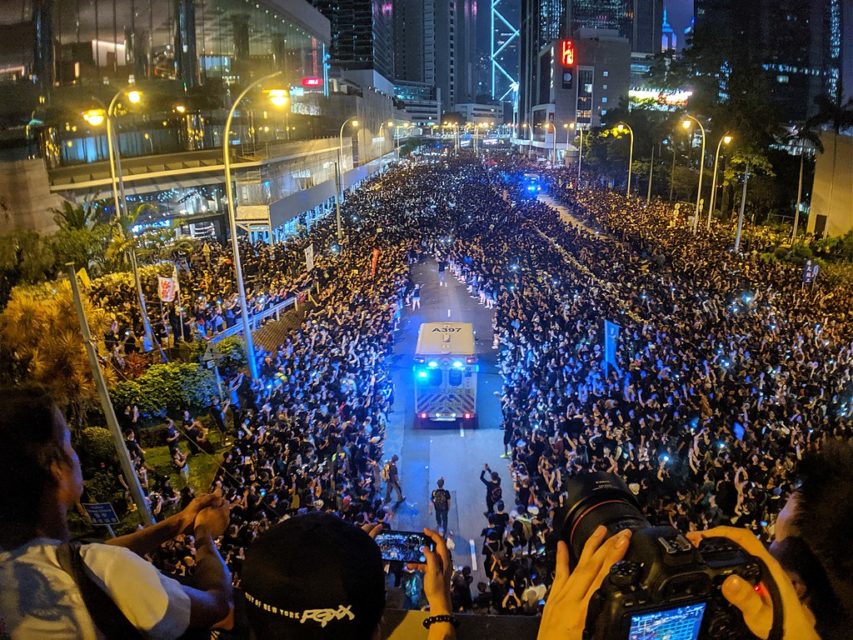
2019 Hong Kong anti-extradition law protest on 16 June, captured by Studio Incendo from Flickr.
Photo via Wikimedia Commons
A sickening pall of inevitability hangs over the protests in Hong Kong, now in their tenth week. Neither side can afford to back down – the protesters, because their way of life, indeed their very lives, are at stake; the Beijing-backed government, for the precedent it would set, and the hope it would inspire.
As the violence mounts — most of it, to date, on the part of the police, or in some cases the Triad gangs hired to beat and intimidate the protesters — so does the likelihood of mass bloodshed, a reprise of the Tienanmen massacre of 30 years ago. Some of the protesters may indeed hope to tempt Beijing into such an appalling overstep; however horrific the prospect, or improbable their chances, it is difficult to blame them.
For as the people of the world’s freest city fend off being swallowed by one of the world’s most repressive dictatorships, they do so largely alone. Fifty-six years ago, when West Berlin faced a similar threat from the Eastern Bloc, the democratic world rallied to its cause – because its cause, they knew, was their cause. President John F. Kennedy went to Berlin to give his great, moving “ich bin ein Berliner” speech, declaring before the world that “all free men, wherever they may live, are citizens of Berlin.” These were not just words — it was NATO policy to defend the city with arms, if necessary.
And today? The president of the United States refers to the protesters as “rioters,” the Beijing-approved term. Should President Xi Jinping decide to suppress the unrest in Hong Kong by force, he seems to be signalling, he would be willing to look the other way — perhaps for reasons of state (what are a few hundred or even thousand lives if it helps close a trade deal?), or perhaps just out of his habitual admiration for dictators. But the government of Canada — 300,000 of whose citizens, let us remember, live in the city — has been scarcely more robust in their defence; neither have most western governments.
July 17, 2019
QotD: “The United States government [became] the greatest and most potent maker of criminals in any recent century”
For most of the history of the United States, drugs were legal. People could buy opiates and cocaine-based products from their local pharmacy. An opiate-laced brew called Mrs. Winslow’s Soothing Syrup, for example, was particularly popular with housewives. One person who viewed this legal system with skepticism was a Los Angeles doctor named Henry Smith Williams. When a small number of his patients became addicted, he was disgusted, and he came to see them as despicable “weaklings.” So when opiates and cocaine were banned in 1914, he welcomed this first birth-pang of the drug war with glee.
But then he noticed what happened to his addicted patients. They didn’t stop using. Instead, “here were tens of thousands of people, in every walk of life, frantically craving drugs that they could in no legal way secure,” he wrote in one of his books. “They craved the drugs, as a man dying of thirst craves water. They must have the drugs at any hazard, at any cost.”
At the same time, Smith Williams realized that the drug war was “in effect ordering a company of drug smugglers into existence.” Because pharmacists could no longer sell these drugs, the Mafia and other criminal organizations stepped in, selling a vastly inferior product at extortionate prices. In the pharmacies, morphine had cost two or three cents a grain, but the criminal gangs charged a dollar.
The death rate among addicts rose, and those who survived began to behave very differently. An official government study had found that, before the drug war kicked in, three-quarters of self-described addicts had steady and respectable jobs: some 22% were wealthy, while only 6% were poor. They were more sedate as a result of their addiction, but they were rarely out of control or criminal. Yet faced with the need to meet these extortionate new prices, many of the men started to commit property crimes, and many of the women started to steal or prostitute themselves.
So Smith Williams watched as the drug war created two waves of crime: first a wave of violent criminal drug-dealers, and then a wave of criminality among addicts. “The United States government,” Henry wrote in shock, had become “the greatest and most potent maker of criminals in any recent century.”
Johann Hari, “A 1930s California story shows why the war on drugs is a failure”, Los Angeles Times, 2017-06-16.
January 4, 2019
The US Turns Away from the World to Prohibition and Crime I Between 2 Wars I 1921 Part 1 of 2
TimeGhost History
Published on 3 Jan 2019After an unpopular war and facing unrest at home, the US returns to isolationism after half a century of gradually opening up to the world. On the home front, prohibition gives rise to more problems of the very kinds it meant to solve; crime and debauchery, and one the biggest crooks is in the White House.
Join us on Patreon: https://www.patreon.com/TimeGhostHistory
Hosted by: Indy Neidell
Directed by: Spartacus Olsson
Written by: Spartacus Olsson and Rune Væver Hartvig
Produced by: Astrid Deinhard
Executive Producers: Bodo Rittenauer, Astrid Deinhard, Indy Neidell, Spartacus Olsson
Edited by Wieke KapteijnsThumbnail depicts US President Warren G. Harding as in his official presidential portrait.
Video Archive by Screenocean/Reuters http://www.screenocean.com
A TimeGhost chronological documentary produced by OnLion Entertainment GmbH
From the comments:
Now… before all you modern liberals and modern conservatives get your panties in a bunch; listen carefully to what Indy says in this video this is not about right or left wing politics in the modern sense, and this video is not about 2018 any parallels you infer to today will by force be way, way off the mark, the world of the 1920s was a very different place. If you have the desire to draw parallels to today we can’t stop you (we disagree on principle, but hey), in any case we’re not telling this part of American history for that reason, this is just the way it happened and we have to cover these events and movements to understand yet another little piece of the puzzle that was laid as the foundation for World War Two.
December 17, 2018
Sun Yat-sen – A Killing in Hong Kong – Extra History – #1
Extra Credits
Published on 15 Dec 2018Growing up in Honolulu, Sun Yat-sen had an expansive, exciting education, which would inspire him when he moved to Hong Kong as a young adult ready to change the world as a doctor — and as the leader of the “Revive China Society” interested in overthrowing the Qing government.
Sun Yat-sen was a dangerous man. The Qing were right to fear him. After all, he’d bring 2,000 years of imperial rule crashing down.
Join us on Patreon! http://bit.ly/EHPatreon
July 25, 2018
Britain, refugees, and migrants
Alex Noble explains why Britain needs migrants, but not all migrants:
Nurses, doctors, engineers, scientists, computer programmers – our society is very advanced and a big chunk of our economic strength is based on advanced services that need skilled people like these. And there aren’t enough native Brits skilled in these areas – our demand outpaces our supply of people. We need lots of computer programmers and only relatively few native Brits are qualifying in computer sciences. And the shortage of young Brits taking STEM subjects is worsening.
So far so good – we need a supply of skilled migrants for the foreseeable future. Hopefully we can all agree on that.
Do we need unskilled migrants?
Because when people with no skills come to the UK, we suffer and so do they. They are either forced into crime, fall into modern slavery, or find themselves exploited working on the black market.
When they are forced into crime, we see more stabbings and rapes and burglaries and murders.
When they fall into modern slavery we see more people-trafficking, more forced prostitution.
When they are exploited, they are forced to work below minimum wage, and the jobs that young British teenagers might have taken are taken by those willing to work for a pittance just to stay alive. When they find themselves working in the black market, they pay no tax and have no protections.
Modern Britain does not need or desire these things – young people enslaved and forced to work for low pay, exploited, or forced into crime. These are profoundly negative developments for our society, and a grotesque abuse of people who were mislead into coming here for what they thought would be a new life.
Modern Britain does not need unskilled migrants, and should not enrich their slavers.
And that brings us to refugees.
Are there genuine refugees? Yes of course.
But we know what refugees look like – men, women and children staggering over the border into the nearest safe nation with the clothes on their backs and often not much else. Poverty-stricken and unable to return to the homelands, they throw themselves on the mercy of their neighbours. Refugees don’t abandon their families in war zones and travel thousands of miles alone. They do not have thousands of dollars to give to slave traders for a seat on their rickety barges.
What we see on the boats are not refugees.
They are mostly young men coming for a better life. And while we cannot begrudge them those intentions, we have already discussed why unskilled migrants cannot be welcomed here in large numbers. And unskilled migrants they mostly are, because skilled migrants come armed with work permits and speak the language. At the very least they have documentation to prove who they are, because being able to prove you are an Iranian heart surgeon is important. Being able to prove you are a penniless and unskilled Eritrean, who doesn’t speak English……………that’s not an identity worth retaining at a border check.
And so the Mediterranean sea floor is littered with their travel documents.
Genuine refuges stagger over the nearest safe border – we must help them if we can.
The unskilled migrants travel here in boats, trafficked by modern-day slavers into the underworlds of our nations. They may have hope in their hearts, but they are bringing misery into a society that cannot absorb them.
March 23, 2018
The use of the euphemism “grooming”
Mark Steyn from a recent Clubland Q&A session:
If you missed our livestream Clubland Q&A on Tuesday, here’s the action replay. Simply click above for an hour of my answers to questions from Mark Steyn Club members around the planet on various aspects of identity politics, from micro-aggressions at the University of California to macro-aggressions in Telford and Rotherham – with a semantic detour into nano-aggressions and quantum-aggressions. Speaking of semantics, I saw this question after the show ended, from Steyn Club Founding Member Toby Pilling:
If with regard to language, clarity is the remedy (as Orwell would say), shouldn’t the ‘Asian Grooming Gangs’ be re-named ‘Moslem Rape Gangs’? I’ve been trying to make the case that they should at the local council I work for, but over here in the UK one can be hauled in for hate speech at the drop of a hat.
I agree with Messrs Orwell and Pilling on clarity in language, and have never liked the word “grooming”, a bit of social-worker jargonese designed to obscure that what’s going on all over England is mass serial-gang-rape sex-slavery. “Grooming” is, in that sense, a euphemism. An hour or two after yesterday’s show I chanced to stop at the Upper Valley Grill and General Store on an empty strip of road in the middle of the woods in Groton, Vermont, a small town of a thousand souls that feels, if anything, rather smaller than that. And paying at the counter I noticed that they had a can next to the cash register for donations to what the hand-written card called the “Groton Grooming Fund”.
Having just been on the air yakking about Telford, I was momentarily startled. It is, in fact, not a whip-round to enable the gang-rapists to buy more petrol to douse the girls in, but a contribution toward the volunteer group that maintains the local ski and snowmobile trails – ie, they “groom” the snow. Happy the town in which grooming is left to the snowmobile club rather than the Muslim rape gangs. The slogan that greets you on the edge of the village is “Welcome to Groton – Where a Small Town Feels Like a Large Family”, which I always find faintly dispiriting. But it’s better than Telford, where a large town feels like a small prison.
March 15, 2018
DicKtionary – H is for Homicide – Francisco Macias Nguema
TimeGhost
Published on 14 Mar 2018H is for homicide, the taking of lives
Bloodthirsty people with pistols or knives
Or government leaders than strangled their nations
And Macias Nguema killed whole populations.Join us on Patreon: https://www.patreon.com/TimeGhostHistory
Written and Hosted by: Indy Neidell
Based on a concept by Astrid Deinhard and Indy Neidell
Produced by: Spartacus Olsson
Executive Producers: Bodo Rittenauer, Astrid Deinhard, Indy Neidell, Spartacus Olsson
Camera by: Ryan Tebo
Edited by: Bastian BeißwengerA TimeGhost format produced by OnLion Entertainment GmbH
March 9, 2018
DicKtionary – G is for Gangster – Arnold Rothstein
TimeGhost
Published on 7 Mar 2018G is for Gambler, relying on luck,
Or insider knowledge, to make a quick buck
G’s also for Gangster, you know what I mean?
And combining the two was Arnold Rothstein.Join us on Patreon: https://www.patreon.com/TimeGhostHistory
Like TimeGhost on Facebook: https://www.facebook.com/TimeGhostHistory/
Written and Hosted by: Indy Neidell
Based on a concept by Astrid Deinhard and Indy Neidell
Produced by: Spartacus Olsson
Executive Producers: Bodo Rittenauer, Astrid Deinhard, Indy Neidell, Spartacus Olsson
Camera by: Ryan Tebo
Edited by: Bastian BeißwengerA TimeGhost format produced by OnLion Entertainment GmbH


